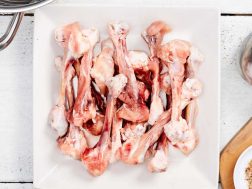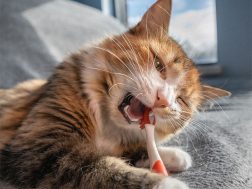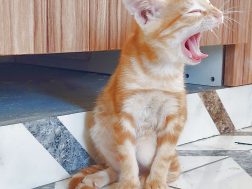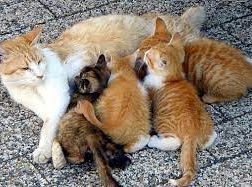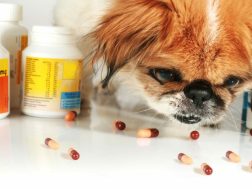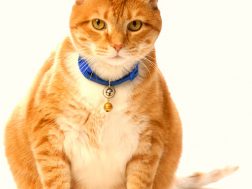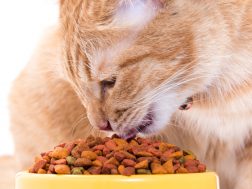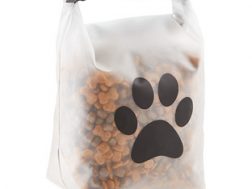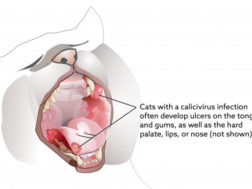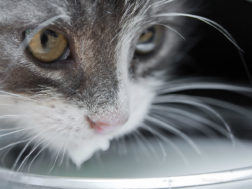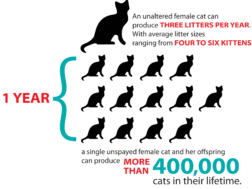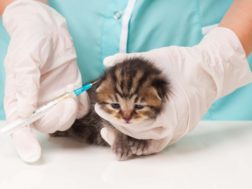Just as you might read your own food labels, pay attention not so much to the catchphrases on the front of the bag or can of cat food, but the label on the back. Specifically, pay close attention to calories. Some cat foods are as high as or more than 500 calories a cup. The average lean cat, say about 10 pounds, likely needs somewhere around 250 calories a day, so that’s 1/2 a cup total of a 500 calorie cat food.
Some nutrients to look for in your cat’s food include:
- Protein: This needs to be animal protein (meat, fish, or poultry) to meet a cat’s carnivore dietary needs. Kittens in particular have a high need for protein in their diet.
- Arginine: An amino acid found in meat. Cats don’t produce this enzyme on their own but need it to remove ammonia from their bodies.
- Taurine: An amino acid that is critical as a kitten grows and for adult cats to remain healthy. It is not produced by cats so it is a critical component of their diet.
- Vitamins: A cat’s diet should include vitamin A, niacin, and vitamin D.
- Water: Making sure your cat stays hydrated is critical.
A lot of thought goes into what and how much to feed your cat, but it’s worth the effort. You don’t want to feed your feline friend too much or too little you need to strike a balance that is just right. Even after you’ve settled on a menu and feeding routine that works for your cat, you’ll want to constantly be evaluating if the meal plan needs to change. Your cat’s nutritional needs will need to adjust as your cat grows and changes. Be sure to keep up on regular vet visits so they can help you monitor any changes to your cat’s weight, and offer any solutions to feeding or dietary issues if they arise.
You May also Like this
Healthy Teeth without Brushing Providing your cat with meaty bones, such as...
Is rabies vaccine necessary for indoor cats? Should you vaccinate an indoor...
Feline Calicivirus Infection in Cats Feline calicivirus is a highly contagious virus...
Ticks are small blood-sucking parasites that can transmit very serious diseases. They...
Intestinal tapeworms and roundworms are very common in kittens and adult cats...
The importance of vaccinations to the overall health and longevity of your...



